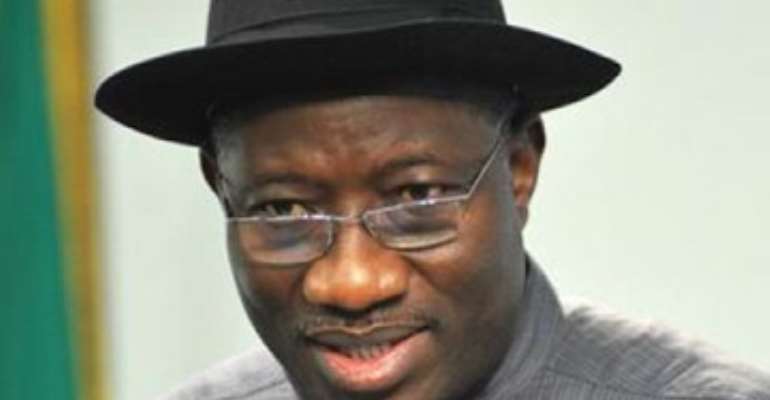Tasks before new ministers - The Sun

President Goodluck Jonathan swore in 11 new ministers on March 5 to replace those he sacked few weeks ago. The replacements, who had been cleared by the Senate in February, include Gen. Aliyu Gusau (rtd), Minister of Defence, Boni Haruna, Minister of Youth Development; Senator Musiliu Obanikoro, Minister of State, Defence; Mohammed Wakil, Minister of State for Power; and Alhaji Abduljelili Adesiyan, Minister of Police Affairs. Others are Ambassador Aminu Wali, Foreign Affairs; Mrs. Akon Eyakenyi, Minister of Lands and Housing; Lawrencia Laraba Mallam, Minister of Environment; Hajia Asabe Asmau Ahmed, Minister of State for Agriculture and Dr. Khaliru Alhassan, Minister of State for Health. The Minister of Sports, Mallam Bolaji Abdullahi, was also dropped and immediately replaced with Dr. Tamuno Danagogo.
Although the change of guard in the affected ministries is widely believed to be politically-motivated, and largely targeted at dropping those either found wanting, or whose loyalties to the ruling government could no longer be guaranteed, there is no debating the fact that the cabinet had, for some time now, been in dire need of a re-jig to quicken the pace of national development.
With this shake up, therefore, Nigerians expect a revving up of the machinery of government for improved service delivery to the people. This is even as further changes are expected in the cabinet in the weeks ahead.
The president, while swearing in the new appointees, rightly urged them to take a cue from the nation's problems that are daily projected in the media and work hard to make a positive impact in their areas of assignment.
To make the necessary impact, we advise the new ministers to take a serious look at the Transformation Agenda of the Jonathan administration as it relates to their various ministries. They should study its components and expedite efforts to move the nation towards the realisation of the desired transformation.
They also need to see public service, to which they have been called, as a trust. It is not for self-aggrandizement. They must, therefore, shun unhelpful distractions and focus on the tasks at hand. The ministers must realise that they not only have a short time to make the necessary impact, the Jonathan Presidency, itself, is on its last lap as it has just one year to the 2015 general elections. What they are able to achieve in their new offices, alongside the other ministers, will go a long way in determining Nigerians' assessment of the performance of the Jonathan administration and the ruling Peoples Democratic Party (PDP). Failure on their part and that of the president to bring about the much-touted transformation of the country will likely affect the chances of the PDP in the coming presidential election.
It is also very important that the new ministers shun corruption, which has become the bane of development in the country. They must be careful with their handling of public funds, and make the best use of funds appropriated to their ministries.
It is vital that they hit the ground running. Many of the ministers are coming into office at a challenging time in their ministries. The new Minister of Defence has the Boko Haram insurgency and the problem of insecurity in the North-East geopolitical zone of the country, as well as in Plateau State, to grapple with. The Minister of Police Affairs has the big task of transforming the police to a strong and efficient force that can face the challenge of internal security in the country. Nigerians are still awaiting the transformation train of the Federal Government in the housing sector. The country has important international sporting competitions coming up while the task of developing our sports remains daunting. The youth unemployment time bomb in the country is ticking closer and closer to detonation. These are all serious challenges that the ministers in charge of the responsible ministries have to sit up and address. They have no time to waste.
We congratulate the new appointees on their new jobs and urge them to do all they can to make a visible difference in their ministries. They must strive to erase the perception that they were chosen to replace their predecessors simply for political reasons. Let the new ministers demonstrate that outside the political considerations that informed their appointments, they do, indeed, have something to offer Nigerians. The task of transforming the country to which they have been called is a very important responsibility in which they must not fail.
